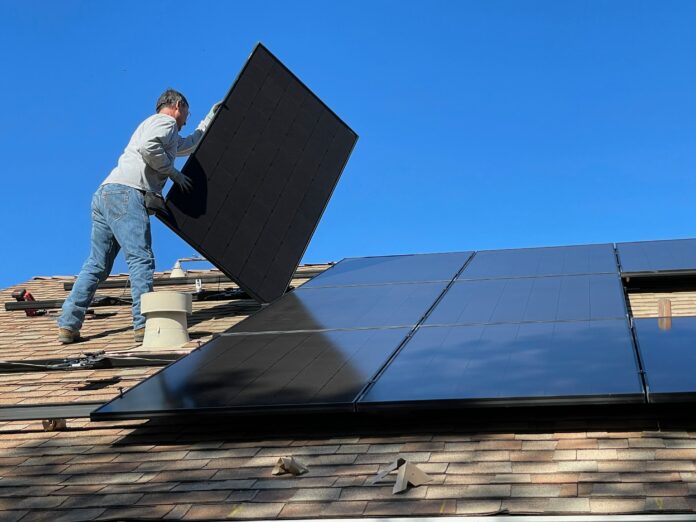In a long-awaited vote, California regulators last week unanimously approved a policy which critics argue may reduce installation of new solar arrays on homes and businesses throughout the state.
The policy, approved on Thursday, Dec. 15, by the California Public Utilities Commission (CPUC), updates the rules governing how solar owners can sell excess energy back to utility companies.
Known as “net metering,” the state’s current rules allow roughly 1.5 million solar owners who send their excess power back into the grid to receive credits from one of the state’s private utilities. Customers can cash in their credits at the end of the year.
The significant financial incentive net metering offered to small-scale customers fueled the uptick in the use of distributed solar throughout California; however, critics argued that the net metering rules needed to be changed to balance the state’s power system moving forward and lower the rates net metering customers received to a level closer to those received by larger producers.
One of the problems at play is a mismatch between supply and demand. Solar panels generate the most energy during the middle of the day, while energy use peaks later, when workers return home. As a result, too much solar energy without enough battery storage can lead to problems.
The CPUC argued that the new policy will encourage more battery adoption by offering new credits to those who own solar and battery set ups.
“This is a vast improvement on the status quo,” Matt Baker, the head of the CPUC’s Public Advocates Office, told the Los Angeles Times. “For solar going forward, it is targeting exactly what we need to target, which is how do we get solar and battery adoption up to levels like Hawaii has.”
The solar industry and various other groups were not convinced that the changes will offer a net benefit. Protests over the past year led the CPUC to update their original proposal, including removing a “solar tax” included in an earlier version of the proposal.
In a statement, the California Solar and Storage Association (CalSSA), an industry group, warned that the CPUC’s vote would trigger “an expected cliff in the growth of new solar installations.” The industry group has estimated the policy change will reduce the amount of money future solar owners are paid for the energy they send back to the grid by 75% and argues the new policy does not do enough to encourage investments in costly battery systems.
“For the solar industry, it will result in business closures and the loss of green jobs. For middle class and working class neighborhoods where solar is growing fastest, it puts clean energy further out of reach,” CALSSA executive director Bernadette Del Chiaro said.
Existing net metering customers won’t be impacted by the rule change, but anyone who installs solar after April 2023 will be.
A state law which went into effect on Jan. 1, 2020 mandates that all new single family homes and some new multi-family buildings be equipped with solar.









